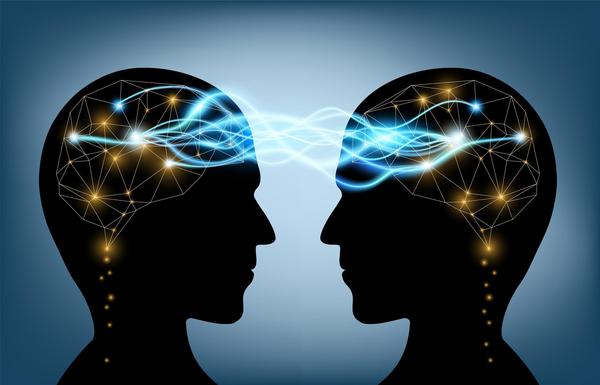Alzheimer’s and Stroke: Finding Connection After Speech Is Gone.
Telepathy and Nonverbal Alzheimer's and Stroke Patients
When a loved one can no longer speak — because of Alzheimer’s disease or another type of dementia, a stroke, or another neurological condition — the silence can feel devastating. Many caregivers are left asking: Is there still someone in there? Are they trying to tell me something?
And more radically: What if they're still speaking… just not with words?
This isn’t a sentimental fantasy. It's an idea supported by personal experience, spiritual traditions, and a growing body of scientific research into human consciousness, parapsychology, and extrasensory perception. In this article, we explore the possibility that telepathic communication with nonverbal patients isn’t just wishful thinking — it is likely very real.
This article
explores the growing body of human experience, emerging neuroscience, and spiritual reflection that support one central idea: that communication is still be possible — even when language is lost.
Revisiting the Telepathy Tapes
In a prior newsletter, we covered the Telepathy Tapes, a podcast and upcoming documentary movie delving into the fact that nonspeaking autistic children communicate telepathically. Now, episodes 5 and 6 of the Telepathy Tapes Talk Tracks series
expand this idea to include people with Alzheimer's and stroke survivors who have lost the ability to speak.
In these podcast episodes, family members and caregivers describe experiences that defy clinical explanation — moments when patients who appear unresponsive seem to react to unspoken thoughts, complete sentences never said aloud; some also display awareness of decisions being made in another room. These aren't isolated anecdotes. They appear across diagnoses, ages, and
settings — quietly suggesting that mind-to-mind communication is much more common than we imagine.
Dan Goerke’s Journey: Love, Loss, and “Felt Thought”
Dan Goerke, a Silicon Valley entrepreneur turned full-time caregiver, recounts his own encounters in the moving memoir Unbelievable, Unforgettable: A
Journey of Telepathy and Compassion in Alzheimer's Care. As his wife declined into late-stage Alzheimer’s and lost her ability to speak, Goerke began experimenting with “felt thought” — a practice of focusing a message inwardly, emotionally, and silently. To his amazement, she often responded — in her sleep, with a tear, a touch, or a perfectly timed gesture. These weren’t just random reactions for Goerke; they felt like direct answers to his questions about how best to take care of his
wife. And for Goerke, they redefined what it means to love — and to listen — when words no longer work.
He doesn’t claim proof. But what he offers is perhaps more powerful: a roadmap for connection, grounded in love and attention. He invites us to view care not just as a moral duty, but as a sacred, silent dialogue — one that may take place beyond the limits of language.
What Does the Research Say?
Contrary to popular belief, there is a robust body of
scientific literature suggesting (many argue proving) that telepathy — or mind-to-mind communication — is real and measurable:
• Dr. Dean Radin’s work in Entangled Minds explores the intersection of quantum theory and psi phenomena, with peer-reviewed data showing
above-chance results in telepathy and remote viewing.
• Rupert Sheldrake and others have demonstrated statistically replicable evidence of people (and animals) sensing when they are being stared at or when a loved one is coming home, receiving thoughts from loved ones before phones ring, and many other psi phenomena.
• Telepathy: Our Lost Sense by Dr. Dianne Cartwright examines brainwave synchronization, mirror neurons, and experimental neuroscience that could explain extrasensory communication.
• The CIA’s declassified Gateway Process Report from 1983 (approved for release in 2003) —
authored by Lt. Col. Wayne M. McDonnell — described specific brainwave techniques that could facilitate nonlocal consciousness, telepathy, and remote viewing. Page 25 is for some reason missing from the CIA published report but can be for free here if you want to read the entire report. You can also find complete
versions of the report on Amazon for a small fee. This report demonstrates that these abilities are real and trainable. The Gateway process was created by Robert Monroe, founder of the Virginia-based Monroe Insitute (he coined the term "out of body experience") that is still in operation after over 50 years and how has multiple locations throughout the US and
internationally. I've read several of Mr. Monroe's books, all available on Amazon.
• The CIA had another project involving thought projection (aka "remote viewing") entitled Project Stargate that started in 1977. There's a good book I read years ago about this, written by the first remote viewer hired by this CIA program, Joseph McMoneagle. HIs book is called The Stargate Chronicles: Memoirs of a Psychic Spy.


